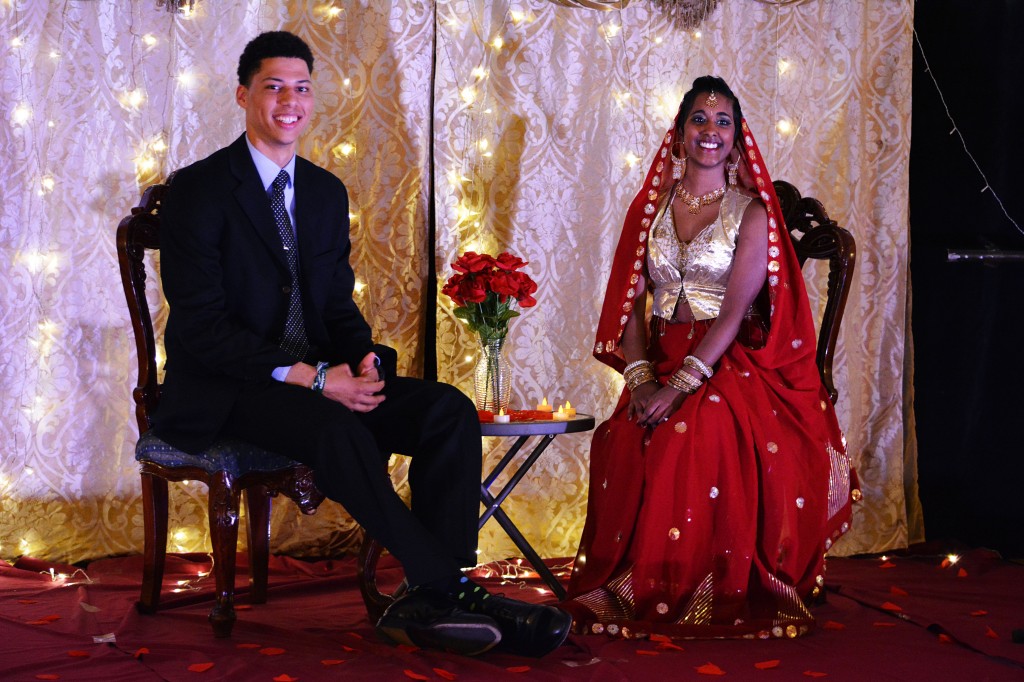
Thundering Hindi music and the aroma of sizzling South Asian cuisine welcomed guests to the Mandela Room where an audience of over 200 witnessed the faux marriage of two Binghamton University students during a mock shaadi.
The shaadi, or traditional South Asian wedding ceremony, was hosted by the Pakistani Students Association (PSA). The classic Pakistani wedding celebrated the unity of “wife” Stephanie Meena, a senior majoring in integrative neuroscience, and “husband” Kieran Bretz, a senior majoring in industrial and systems engineering.
Guests were handed flower petals or fake money upon entry to shower the couple when they entered. Before the ceremony began, the audience watched a recording of the fake proposal from a week before where Bretz presented a bouquet and a ring to the bride in front of a crowd of cheering students in a Lecture Hall room.
The bride and groom made their entrance one at a time with the groom entering first, flanked by his groomsmen. The bride came in moments later, obscured from view as her bridesmaids held a cloth overhead, before she joined her future husband at their place on thrones at the head of the room. The ceremony happened on a stage at the front of the room, where strands of white lights illuminated the stage.
Elements of a traditional South Asian wedding were present around the room, such as a henna tattoo table and Indian music. A highlight for many attendees was the bright traditional clothing, such as women’s saris.
Ushna Khan, a sophomore majoring in integrative neuroscience, said the event was not only meant to showcase the wedding ceremony, but show students the beauty of Pakistani culture.
“Pakistan is generally seen negatively in Western countries so we wanted to put on an event to show how rich the culture is,” Khan wrote in an email. “We also wanted to host a different type of event to get people more involved so they not only see the traditions, but they could actively participate themselves.”
South Asian weddings are generally celebrated over the course of several days leading up to the matrimonial ceremony, with each day dedicated to a particular activity. The event featured performances by Binghamton Bhangra, a traditional Indian dance team, and members of the audience who represented the bridesmaids and groomsmen.
Guests enjoyed traditional Pakistani and Indian cuisines ranging from chicken makhani to curried vegetables, basmati rice and sweets from Moghul Indian Cuisine, which were included in the $5 ticket. Funds were also provided from grants by the Multicultural Resource Center and bake sales by the PSA.
The shaadi, which began at 6:30 p.m., went on long into the night. After the choreographed dances and dinner, the floor was open to all guests, many of whom kicked off their heels to dance to a mix of Indian and mainstream music.
Faiz Gouri, a first-year graduate student studying computer science, said it reminded him of personal experiences with South Asian weddings.
“I’m from India, and this is the first traditional wedding I’ve been to in the United States,” Gouri said. “I’m really enjoying this food and dancing. It reminds me of those previous times when I used to dance with my siblings at marriage ceremonies. It reminds me of home.”


